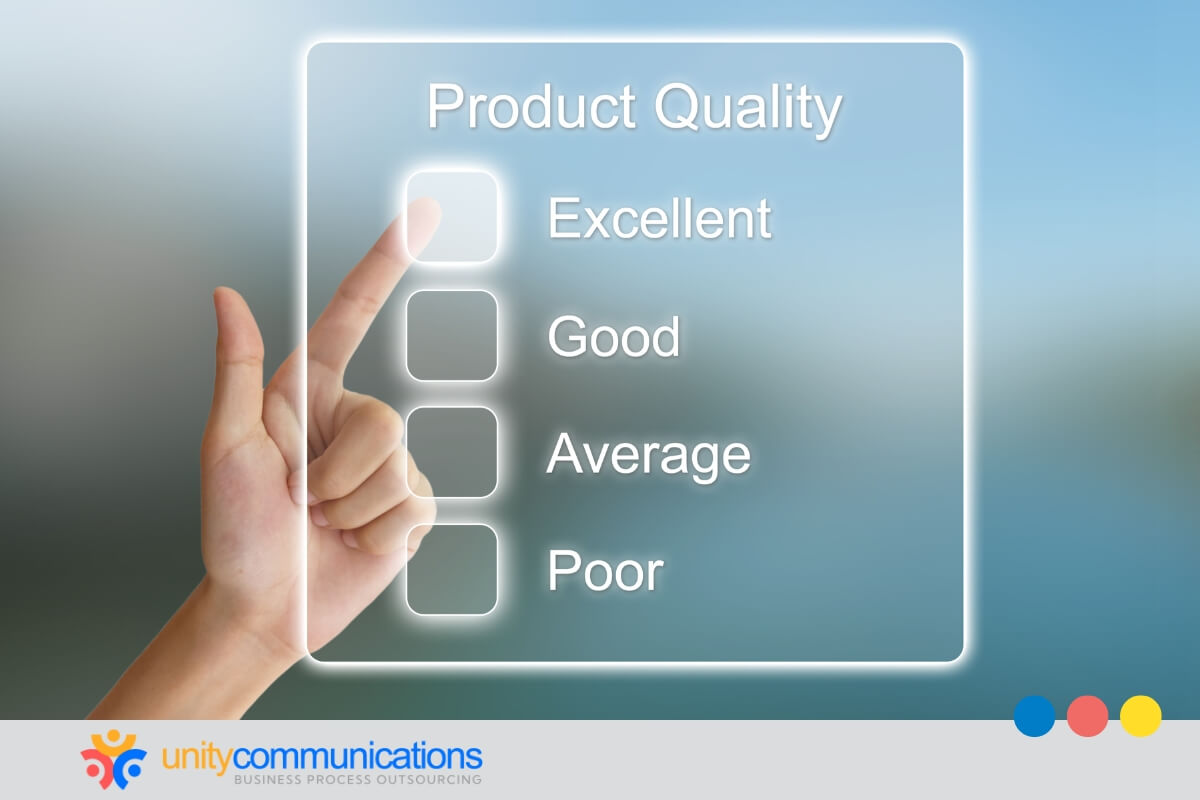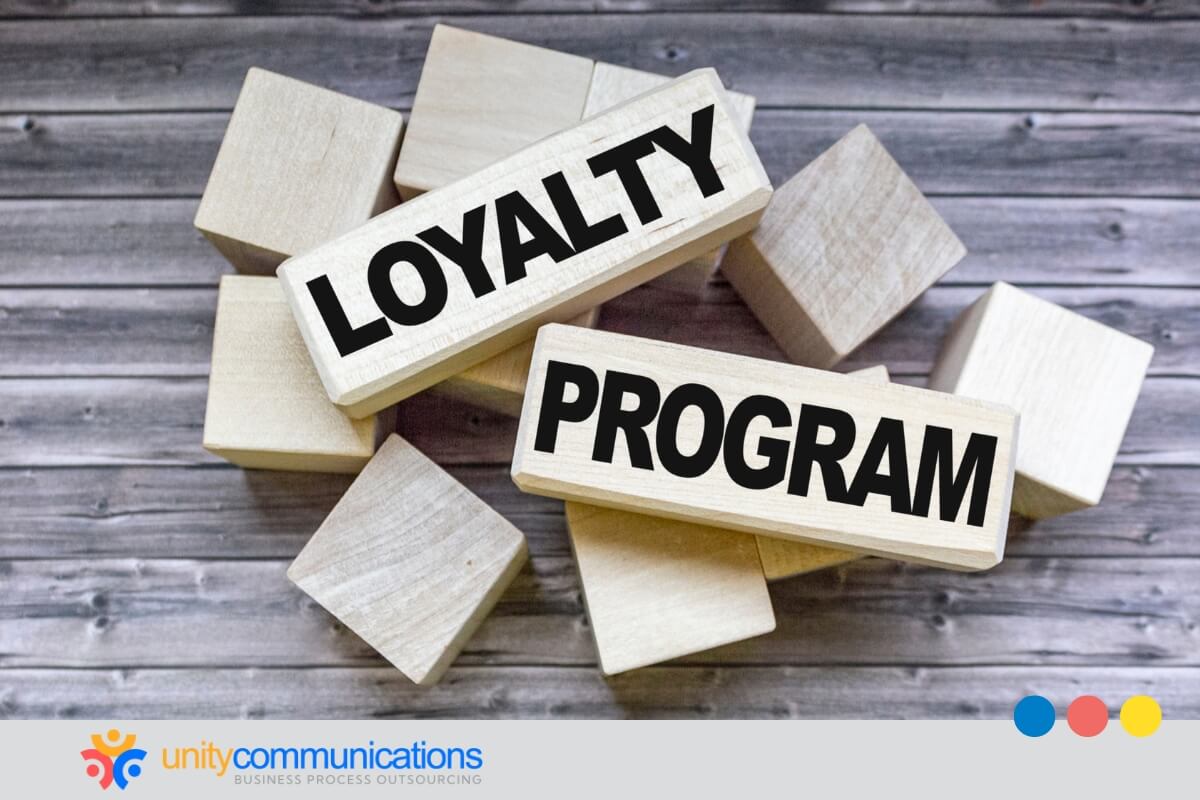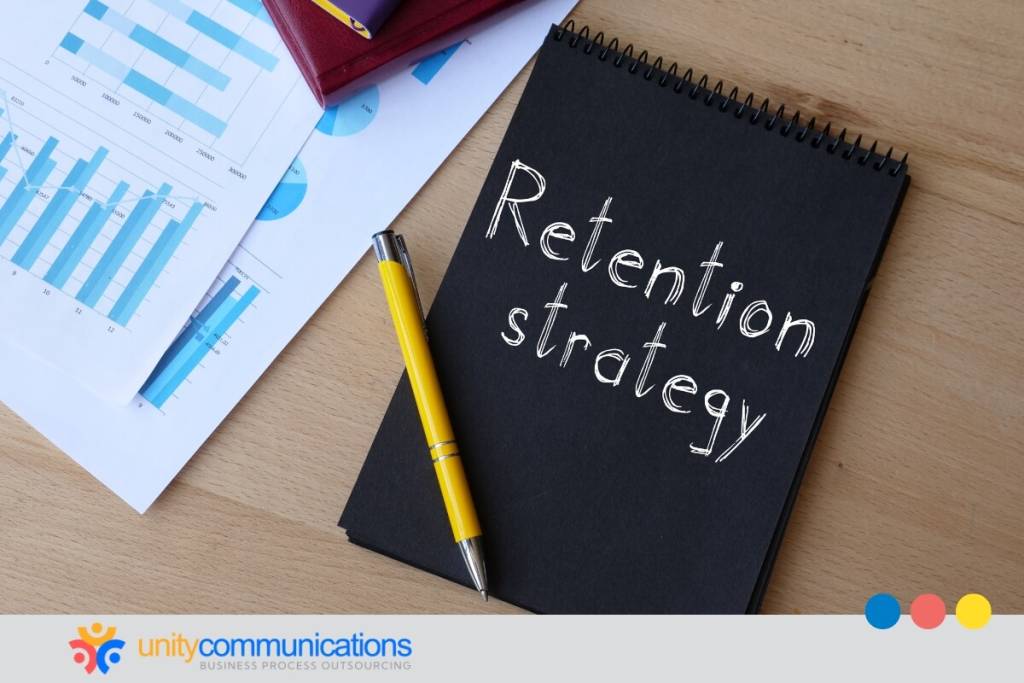IN THIS ARTICLE
Table of Contents
Business success depends solely on consumer satisfaction. A superior client experience fosters brand loyalty. Meanwhile, no matter how slight, inadequate service delivery can drive away even the most loyal customers.
Adopting business process outsourcing (BPO) helps boost your client retention strategies. Service providers house skilled professionals and advanced solutions to streamline customer service. They let you prioritize improving your core products to meet customer expectations.
This article explores how a third-party company contributes to expanding and maintaining your customer base. Keep reading to align your goals and techniques with your chosen provider.
What does it take to keep loyal customers?

Delivering an exceptional customer experience (CX) encourages buyers to stay loyal and continue doing business with your brand. Every interaction between consumers and your company can build or impair the relationship.
Zendesk’s CX Trends Report 2023 shows good customer experiences can strengthen loyalty and retention. Meanwhile, multiple bad experiences push 73% of consumers to switch to a competitor brand.
Hence, fast and effective customer service should be your priority. In its latest report, Emplifi noted that rapid response times and 24/7 support availability matter the most to consumers. Not meeting this demand makes more than half of them feel pessimistic about the brand.
BPO companies help address such needs by implementing innovative client retention strategies. They support the following crucial factors to keep or expand your loyal customer base:
- Communication. Engaging regularly with customers demonstrates your commitment to meeting their needs. Whether via email newsletters or social media updates, staying connected lets consumers know their value to your business.
- Personalization. Tailoring your product or service according to customers’ preferences significantly enhances brand loyalty. Customer data analytics further personalize recommendations, promotions, and experiences.
- Product and service quality. Offering high-quality products and services is essential for retention. Existing customers will continue to purchase from your business if they consistently receive reliable, cost-effective goods.
- Reward program implementation. Loyalty programs, discounts, or exclusive offers encourage repeat customers. Incentivizing their continued support establishes a sense of appreciation.
- Transparency and trust. Buyers trust a business with transparent practices, especially regarding pricing and data privacy. Being honest and forthright strengthens your credibility and enhances customer relationships.
- Feedback collection. Actively seeking clients’ insights shows your commitment to meeting their demands and expectations. Incorporating buyer feedback into your business processes makes customers feel valued and heard.
- Brand experience. Providing consistent CX across all touchpoints helps reinforce your brand identity and credibility. Maintaining a uniform presence across your online and physical platforms gives customers the confidence to trust your brand.
- Adaptability. Amid the rapidly changing business environment, your ability to adjust to fluctuating customer preferences and market trends allows for long-term success. Flexibility enables you to stay relevant and keep up with customer needs.
How BPO providers support client retention strategies

Pairing BPO capabilities with client retention strategies brings significant cost savings and quality outcomes. Service providers optimize scalable resources and robust solutions to assist clients in retaining customers.
Below, we discuss their specific contributions to customer retention.
Deliver omnichannel customer support
Providing omnichannel customer service is how BPO call centers help your business maintain clients. They employ support agents capable of responding to inquiries using multiple communication channels, such as phone, email, live chat, and social media.
These skilled workers undergo comprehensive training to deliver fast and effective support across various platforms. They learn to adapt to customers’ communication styles and preferences to ensure a seamless and cohesive experience.
Most importantly, third-party agents must familiarize themselves with your brand to appropriately respond to customer concerns. Providers also combine their human resources with cloud-based omnichannel platforms to address inquiries within a unified system.
The integration of human and tech resources ensures consistent and streamlined interactions. It enables seamless channel switching, letting customers contact your business via any medium without repeating data input. The outsourced service also includes these advantages:
- BPO call centers use advanced customer relationship management (CRM) systems to centralize consumer data from different channels and touchpoints. This unified view of each client’s transaction history allows agents to provide personalized assistance.
- Service providers leverage automated routing mechanisms to monitor incoming inquiries across different channels in real time. This system ensures customers receive timely and appropriate responses from appropriate agents.
- Third-party agents utilize advanced analytics tools to track and analyze customer interactions across multiple channels. The collected insights inform them about customer behavior patterns, communication preferences, and satisfaction levels. This data guides them to proactively address consumers’ issues before they escalate.
- Call center vendors optimize artificial intelligence (AI)-powered chatbots to provide round-the-clock customer support. They also enable automated email and call responses to rapidly answer basic inquiries any time of the day or night.
Personalize customer engagement
BPO providers highlight personalization in client retention strategies. They help you deliver customer-centric support services that drive higher satisfaction rates and encourage repeat purchases.
The third-party team boosts your revenue while delivering value to your consumers through these customer retention strategies:
- Optimize data analytics tools to collect and analyze customer data. Data analysis assists BPO companies in segmenting consumers based on demographics, purchase history, preferences, and behavior patterns. These insights allow them to improve engagement techniques to meet unique customer needs.
- Address customers by name and use a friendly tone. Regardless of the channel used, agents can create a more meaningful connection by warmly greeting customers. This practice makes clients feel respected and recognized.
- Apply predictive modeling techniques to forecast customer demands. The results guide you and your BPO partner in customizing product and service offers. They also inform strategies to personalize recommendations and promotional tactics.
- Provide contextualized support. Integrating customer data and interaction history into a core omnichannel platform enables BPO agents to improve first-contact resolution (FCR). They can provide real-time and accurate solutions without requiring customers to follow up multiple times.
- Actively seek customer feedback through surveys and reviews. This step reflects your commitment to listening and acknowledging customers’ opinions. Your BPO provider uses these insights to identify areas for improvement and tailor services to better meet customer expectations.
Facilitate customer loyalty programs
While customers prioritize high-quality products to keep purchasing from their favorite brands, Merkle stated the demand for loyalty programs remains high. Its 2024 Loyalty Barometer Report also revealed consumers increasingly participate in paid and free programs.
BPO companies help facilitate loyalty programs as part of their client retention strategies to meet those needs. They use the enumerated methods to boost such efforts:
- Conduct thorough market research and analysis. This function allows the BPO team to identify rewards and engagement strategies that resonate with target customers. It ensures the initiatives match your business objectives and consumer preferences.
- Build and maintain loyalty program software. Advanced loyalty platforms enable seamless customer loyalty account enrollment, tracking, and management. They also optimize customer data and transaction history for personalized rewards and offers.
- Employ data analytics tools to track engagement within loyalty programs. Gaining insights into member activity and sentiment helps your in-house and third-party teams determine issues to resolve and areas to improve.
- Monitor the performance of loyalty programs in real time. BPO providers utilize AI and machine learning (ML) to track key metrics on the platform, such as enrollment rates, redemption activities, and member satisfaction ratings. They use the results to enhance the initiative’s effectiveness.
- Manage relationships with loyalty program partners. Third-party providers negotiate agreements with vendors, suppliers, and affiliates. Expert relationship management expands the rewards and benefits available to loyalty program members.
Strengthen data security and regulatory compliance
In its State of the Connected Customer report, Salesforce noted that consumers have become significantly protective of their data. They comfortably provide personal data if businesses clarify how they will use it. Transparency strengthens their trust in the brand.
Third-party call centers help meet such demand by establishing clear data privacy policies that match your guidelines and regulatory standards. These rules are readily available through the website or official channels. The policies detail how they collect, store, use, and protect customer information.
BPO providers follow these other client retention strategies to safeguard customer data and ensure legal compliance:
- Obtain informed consent from customers before collecting personal data. Let customers know how their information will be used during interactions. They must also be able to opt in or out of data processing activities.
- Implement robust security measures. These practices include encryption techniques, firewalls, secure networks, and multifactor authentication strategies. They protect customer data from unauthorized access, theft, or breaches.
- Adhere to local and industry-specific laws on data and privacy protection. BPO firms update themselves on relevant regulations, such as the Payment Card Industry Data Security Standard (PCI DSS). They ensure their processes remain compliant with evolving legal requirements.
- Perform regular audits of data security practices and systems. This effort allows your in-house and BPO teams to identify and mitigate vulnerabilities early on. It helps validate and update information and privacy and security protocols.
- Host security and compliance training and awareness programs. These efforts educate BPO workers about their roles and responsibilities in protecting customer information. Training sessions cover topics such as password hygiene and data handling procedures.
- Apply strict authorization mechanisms. Providers only permit authorized employees to manage customer data. They also employ role-based access controls and identity management solutions to double the protection.
- Develop comprehensive incident response and contingency plans. BPO firms establish a core team to handle their security and compliance efforts.
Working with BPO firms: Tips for optimizing client retention strategies

After knowing what BPO providers do to boost your customer retention strategies, you should understand how to maximize the partnership. Doing so enables you to scale your resources effectively and deliver high-quality customer service. Consider these tips to get started:
- Set clear customer retention goals and expectations for the provider. Specify your desired outcomes when negotiating a service-level agreement (SLA) with the third-party call center.
- Choose the best BPO company. Ensure the call center provider matches your organization’s values, culture, and strategic goals. Assess its track record, industry expertise, and reputation to guarantee it can deliver high-quality customer support.
- Support the training of third-party customer support agents. Provide necessary materials to educate BPO staff about your products, services, brand values, and customer demographics. Ensure they thoroughly understand your business to represent your brand effectively.
- Define clear customer service processes with the BPO firm. Document standard operating procedures (SOPs) and escalation protocols to maintain consistency and efficiency in service delivery throughout the contract period.
- Establish transparent and open communication with your BPO provider. Schedule regular meetings and feedback sessions to promptly identify and address customer service challenges. This approach also allows both parties to determine ways to improve customer retention techniques.
- Develop and monitor key performance indicators (KPIs). These metrics measure the effectiveness of outsourcing your CX strategies. Knowing your customer satisfaction scores, retention rates, and resolution times lets you enhance your customer service strategies.
- Provide service guidelines. Remember to establish a well-structured feedback mechanism once you assign your customer support to a third-party BPO team. Base your recommended actions on set KPIs and customer feedback. This helps third-party agents improve performance and deliver exceptional CX.
- Implement incentive programs or performance-based bonuses. These initiatives motivate the BPO team to reach and exceed customer retention targets. Recognize and reward exceptional performance to reinforce positive behavior and boost the bottom line.
- Review the BPO call center’s performance regularly. Evaluate whether the third-party team abides by SLA terms and conditions. Ensure its work strategies meet your in-house and regulatory requirements to avoid operational disruptions.
- Maintain flexibility and adaptability. Remain flexible and adaptable in your BPO client retention strategies. Be open to changes and recommendations to improve your company’s customer service.
The bottom line
Expanding and strengthening your customer base requires understanding crucial factors to satisfy consumer demands. You must actively interact with your buyers and personalize each engagement to urge them to remain loyal to your brand.
BPO call centers recognize the importance of such considerations. Besides providing cost-effective customer service operations, they implement various innovative strategies to help retain your loyal consumers.
As long as you know how to optimize this third-party capability, you can expect returns on your outsourcing investment. Ready to deliver a superior customer journey? Let’s connect and explore a potential deal to boost your consumer-facing functions.





